- Learning time
- 5 minutes
- First play time
- 30 minutes
Keltis: The Dice Game
Designed by: Reiner Knizia
Based on the cards-and-board game Keltis, this smaller dice-based version (Das Würfelspiel) is pretty much the same deal: players are moving their pieces along a series of stepping-stone paths – each marked by a distinct symbol – trying to get their pieces furthest along at the point the game ends.
The tiny board slots together and each player takes pieces in their chosen colour. On your turn you roll the dice: you get a maximum of three rolls and you’re trying to push your pieces along the paths by rolling matching symbols on the dice: three matching symbols means you can move three spaces on the matching path, and so on. But you may have only one of your pieces on any of the paths, and where you stop may also bring a benefit: certain places on the paths let you either move a piece up a path of your choosing – potentially triggering further benefits! – or even have a second free turn.
You may also collect emeralds from the dice rolls: rolling two emeralds on the dice allows you to pick up one emerald from the supply. Each emerald is a point at the end of the game.
The game finishes when a certain number of pieces have reached an ‘end zone’ on the paths, passing around the 3/4 mark. Players score points for their position on the paths (more points the further you go; negative points if you’ve barely travelled at all!) and a point per emerald.
The guru's verdict
-
Take That!
Take That!
Negligible, though don't be fooled into thinking the game is purely luck. But most of the Take That comes form the dice, crushing your hopes and dreams.
-
Fidget Factor!
Fidget Factor!
Low to non-existent. Roll the dice; take your moves.
-
Brain Burn!
Brain Burn!
There is a modicum of strategy here: focus on one moving one piece at the expense of others? Try and trigger a series of benefits? Or push ahead of someone else on a track you were previously disinterested in...
-
Again Again!
Again Again!
Variability comes from the dice: it's not an immersive experience (score points!) but it's tiny, portable, and plays fast.

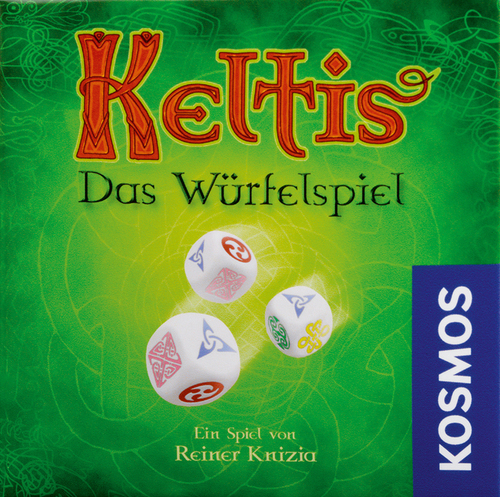

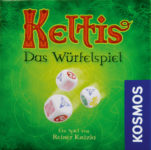
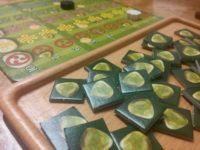


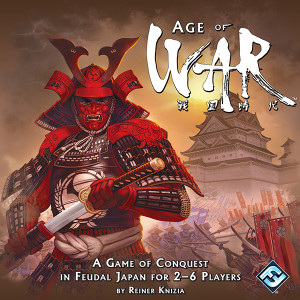
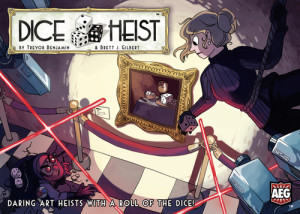
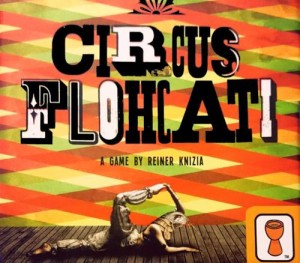
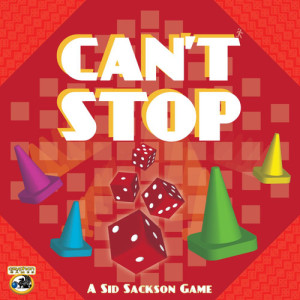
Sam says
Keltis: The Dice Game doesn't roll into my favorite games ever (my go-to push-your-luck game is Can't Stop) but it's short and sweet and can be played by all ages: in the park, or in the pub.